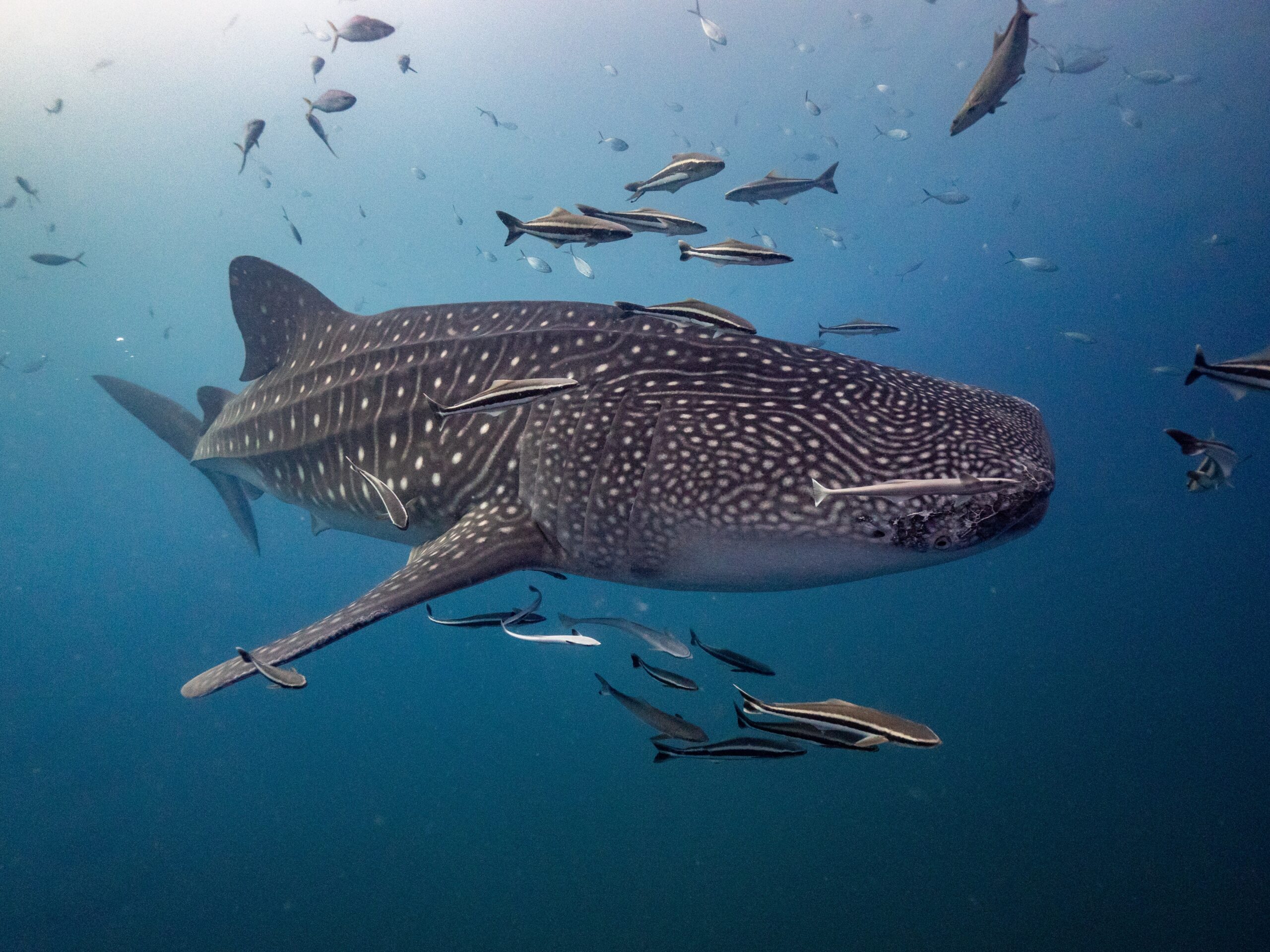Whale sharks, the majestic giants of the ocean, captivate the hearts and minds of those who venture into their watery world. Despite their immense size and distinctive appearance, there is much about these gentle creatures that remains unknown to the general public.
In this list, let’s take a look at surprising facts about whale sharks that will both educate and amaze you. Prepare to explore the depths of knowledge and discover what makes these creatures truly extraordinary.
1. World’s Largest Fish

Few marine creatures can compare to the whale shark in size; it holds the title of the world’s largest fish. With a length that can reach up to 40 feet and a weight approximating 20.6 tons, these ocean giants are awe-inspiring.
Contrary to their intimidating size, whale sharks pose no threat to humans, feeding primarily on plankton and small fish. Their gentle nature allows divers to swim alongside them, creating a unique and unforgettable experience.
This peaceful coexistence often leads to awe and admiration among those who encounter them in their natural habitat. The sheer size of the whale shark contributes significantly to its mystique, sparking wonder among scientists and ocean enthusiasts alike.
Despite their size, these creatures glide effortlessly through the water, embodying grace and elegance. Their role as gentle giants underscores their importance in marine ecosystems.
2. Unique Spot Patterns
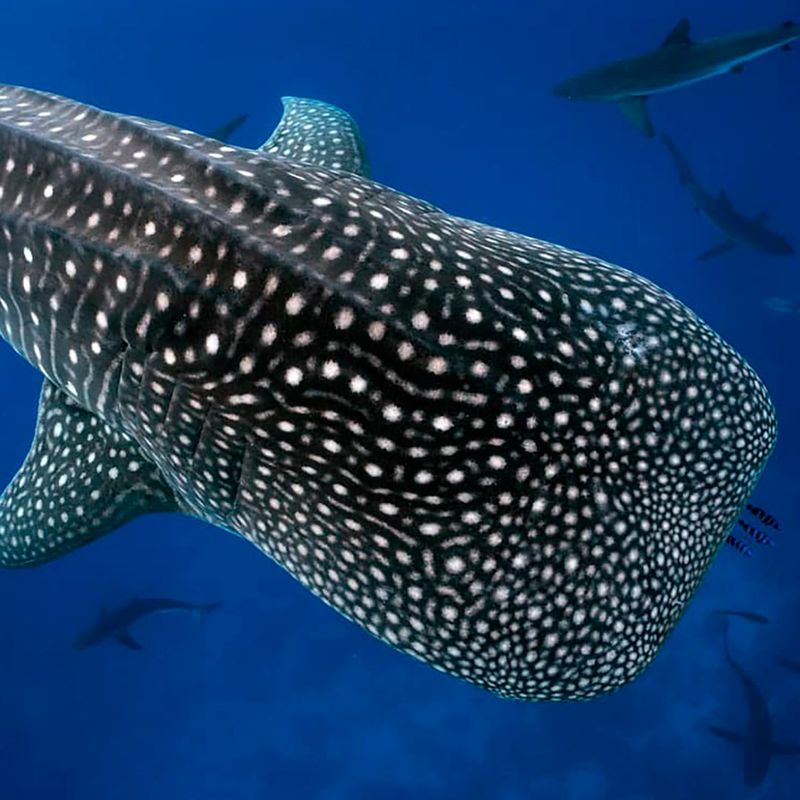
Each whale shark boasts a unique pattern of spots and stripes, much like a fingerprint in humans. These patterns allow researchers and scientists to identify and track individual whale sharks across the oceans.
Using photo-identification techniques, scientists can study their migration patterns, behaviors, and populations. The distinctiveness of these patterns makes whale sharks a subject of fascination for marine biologists.
This uniqueness not only aids in research but also adds to their enigmatic beauty, captivating those fortunate enough to study them up close. The use of technology in tracking these patterns has advanced significantly, providing deeper insights into their lives.
Understanding these patterns contributes to conservation efforts, ensuring these magnificent creatures continue to thrive. The individuality of each whale shark highlights the diversity and complexity of marine life.
3. Filter Feeders
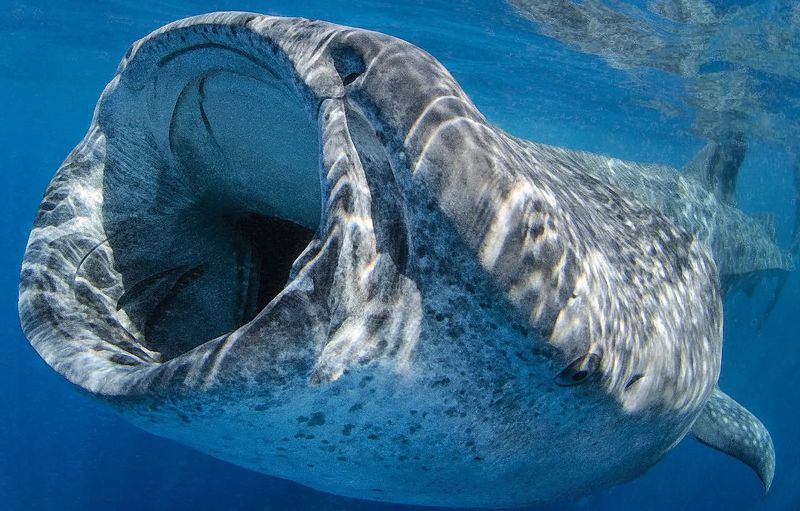
Unlike many of their predatory shark cousins, whale sharks are filter feeders, a trait they share with only a few other shark species. They consume vast quantities of plankton and small fish by swimming with their mouths wide open, filtering food through their gills.
This feeding method is both efficient and graceful. Their diet consists of microscopic organisms, which play a crucial role in the marine food web. By feeding on plankton, whale sharks help maintain a balanced ecosystem, showcasing their importance beyond their sheer size.
This gentle feeding approach allows them to coexist harmoniously with other marine life. Observing a whale shark feed reveals the intricacies of ocean life and the interconnectedness of marine species. Their feeding habits are a testament to their adaptability and evolution.
4. Warm Ocean Dwellers
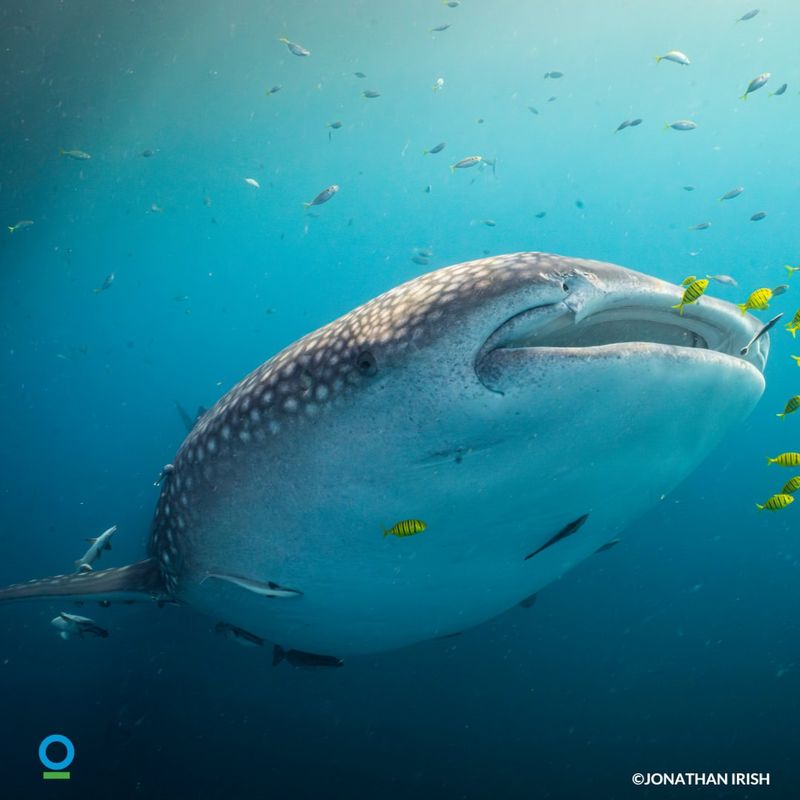
Whale sharks are predominantly found in warm ocean waters, making tropical and subtropical regions their preferred habitat. These areas provide the ideal environment for their feeding and migration patterns.
The abundance of plankton in warm waters supports their dietary needs and sustains their large size. Their presence in these regions attracts tourists and researchers alike, eager to observe these creatures in their natural settings.
Many coastal communities benefit from eco-tourism centered around whale shark encounters, highlighting the economic importance of these gentle giants. The choice of habitat also influences their breeding and social behaviors, key factors in their conservation.
Understanding their habitat preferences helps in planning effective conservation strategies. The warm ocean waters they inhabit are as diverse and vibrant as the whale sharks themselves.
5. Migratory Giants
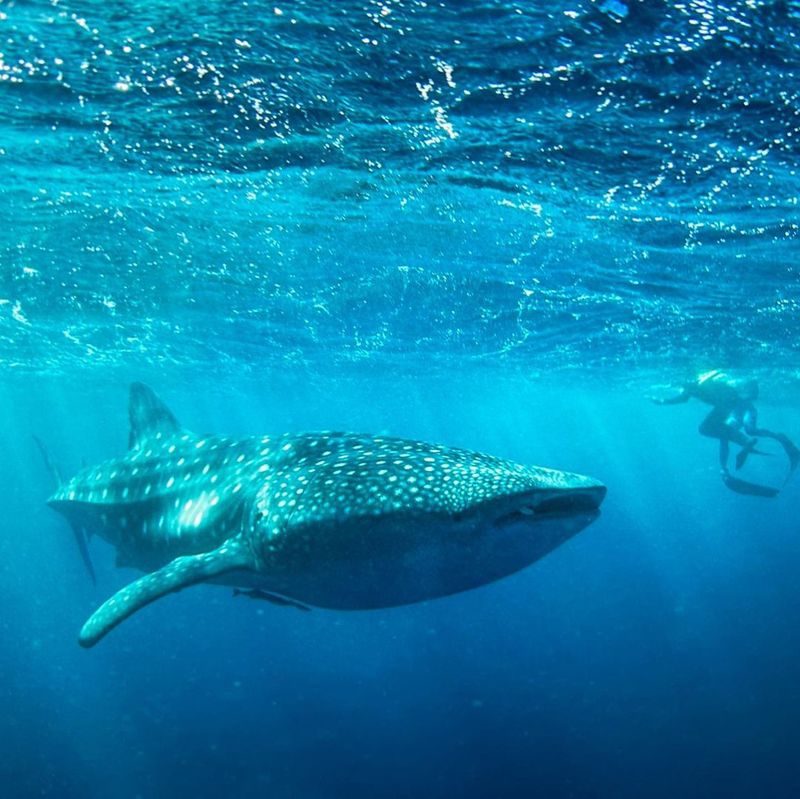
The migratory nature of whale sharks takes them across vast ocean distances, spanning thousands of miles. These journeys are essential for their feeding, breeding, and survival. Tagged individuals have been tracked moving between continents, showcasing their incredible endurance and adaptability.
Migration patterns are influenced by factors such as water temperature, food availability, and breeding cycles. These patterns are vital for understanding their life cycle and have implications for conservation efforts.
Researchers utilize satellite tagging to monitor these journeys, gaining insights into their long-distance travel and behaviors. This knowledge aids in protecting critical habitats and ensuring safe passage. The migratory patterns of whale sharks reflect their role as global oceanic travelers.
6. Gentle Giants
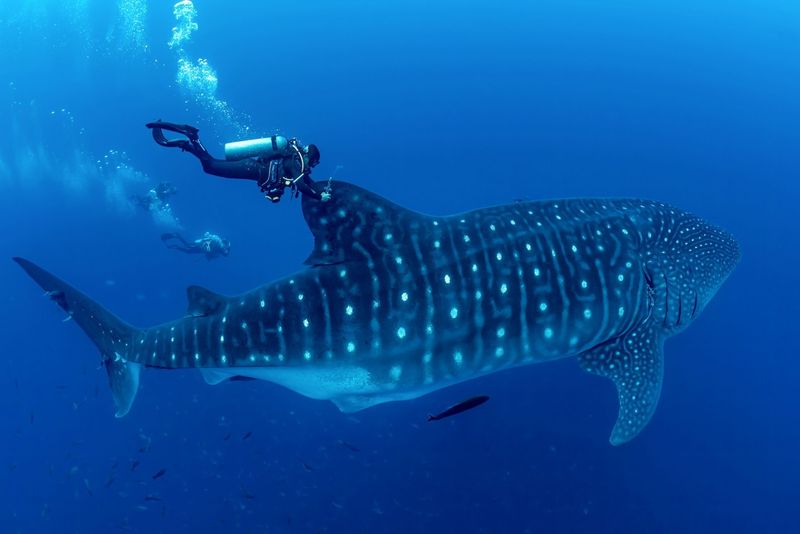
The gentle nature of whale sharks makes them a favorite among divers and marine enthusiasts. Despite their size, these creatures pose no threat, allowing for close encounters underwater. Interactions with whale sharks are often described as peaceful and awe-inspiring.
Their calm demeanor contrasts sharply with the typical portrayal of sharks as aggressive predators. This behavior has earned them the nickname “gentle giants,” a fitting description for these majestic creatures. Swimming alongside a whale shark offers a profound connection with nature, leaving a lasting impression on those fortunate enough to experience it.
7. Live Long Lives
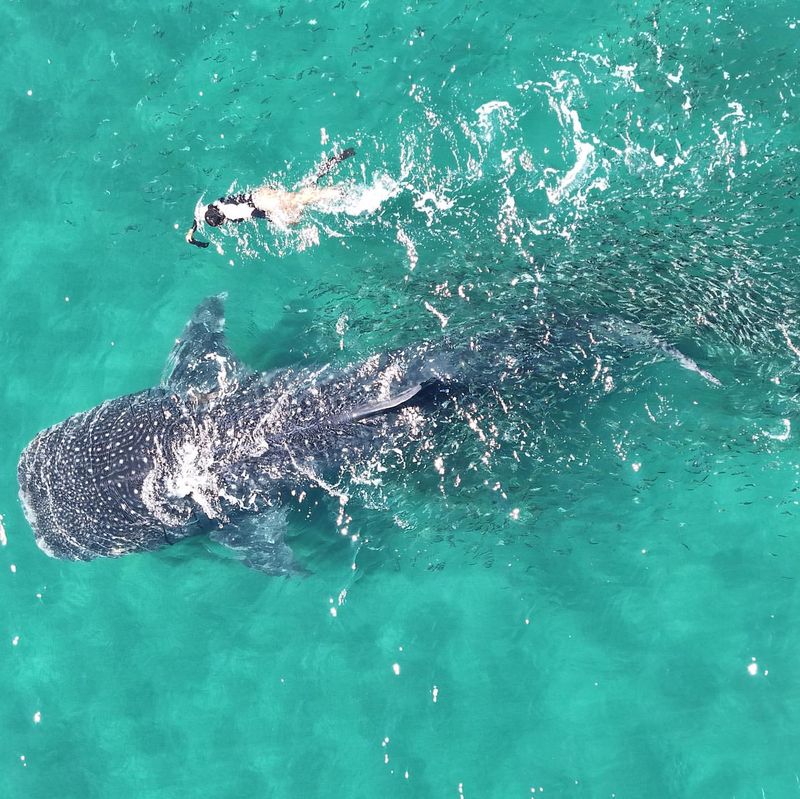
Whale sharks are known for their impressive longevity, with lifespans reaching up to 70 years or more. Their long lives are largely attributed to their slow growth and low reproductive rates. These factors contribute to their vulnerability, highlighting the need for conservation efforts.
Protecting their habitats and mitigating human impacts are essential for supporting their long-term survival. The longevity of whale sharks underscores the importance of preserving marine biodiversity for future generations.
8. Slow Reproducers
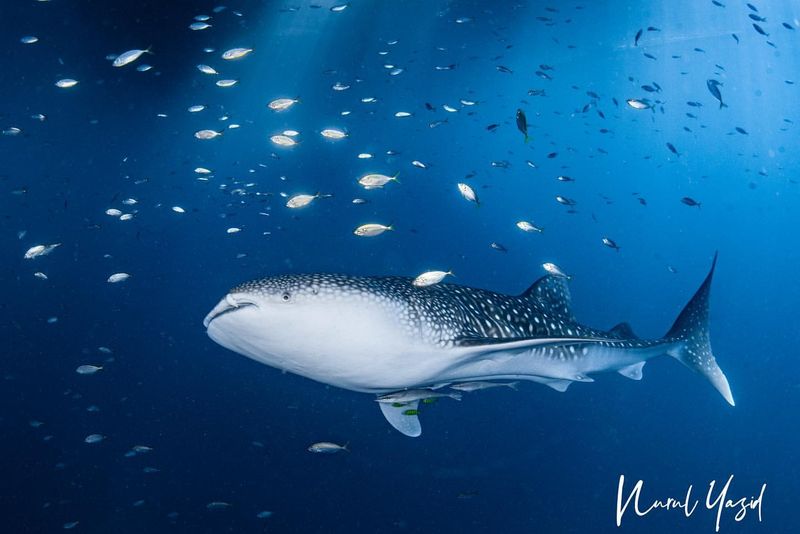
Whale sharks exhibit slow reproductive rates, a characteristic that poses challenges for their population growth. Females give birth to live young, with litter sizes varying but often consisting of around 300 pups. This reproductive strategy ensures their young are developed before entering the ocean.
Maturity is reached at a later age, further influencing their population dynamics. The slow rate of reproduction makes them susceptible to threats, emphasizing the importance of conservation measures. Efforts to protect breeding grounds and reduce human-induced threats are vital for supporting their populations.
The reproductive traits of whale sharks highlight the need for careful management to secure their future.
9. Conservation Status
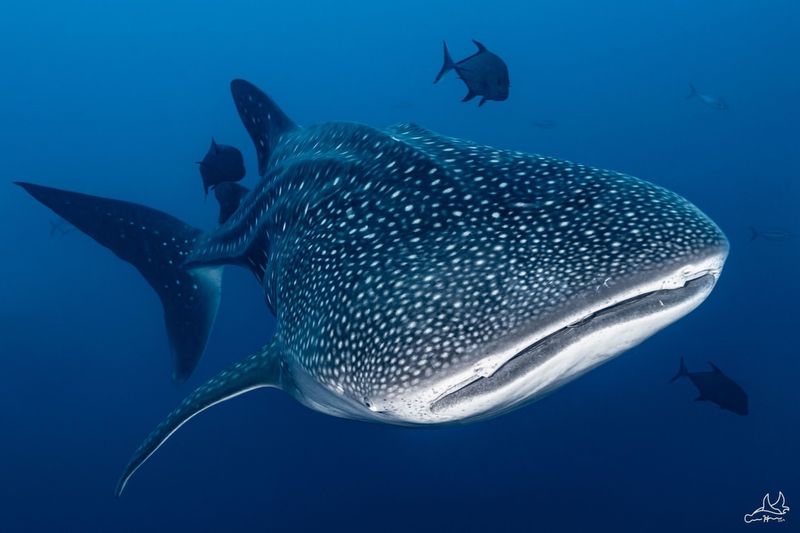
The conservation status of whale sharks is classified as endangered, reflecting the challenges they face in the wild. Human activities, such as fishing and habitat destruction, pose significant threats to their survival. Conservation efforts focus on protecting critical habitats and regulating human interactions.
International cooperation is essential for safeguarding these migratory creatures. Marine protected areas and sustainable tourism practices play a crucial role in their conservation. Raising awareness about their endangered status encourages global action to protect these gentle giants.
The conservation status of whale sharks serves as a reminder of the urgent need to preserve marine biodiversity. Efforts to protect whale sharks have far-reaching benefits for ocean ecosystems.
10. Cultural Significance
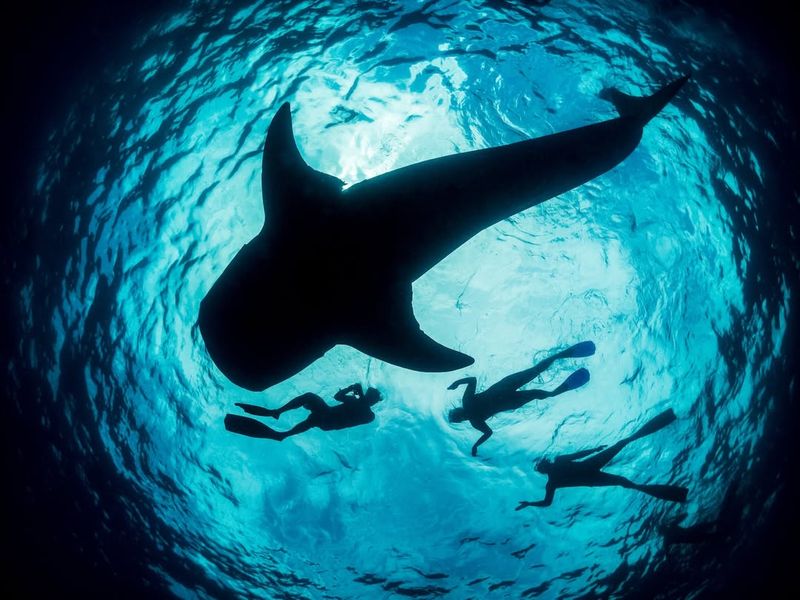
In many coastal cultures, whale sharks hold significant cultural value, often regarded as symbols of peace and harmony. Their presence in folklore and art highlights their importance to local communities. This cultural significance fosters a sense of stewardship and responsibility for their protection.
Eco-tourism centered around whale shark encounters provides economic benefits and promotes conservation awareness. Communities benefit from the sustainable management of these encounters, ensuring that whale sharks are protected for future generations.
11. Mysterious Birth Process
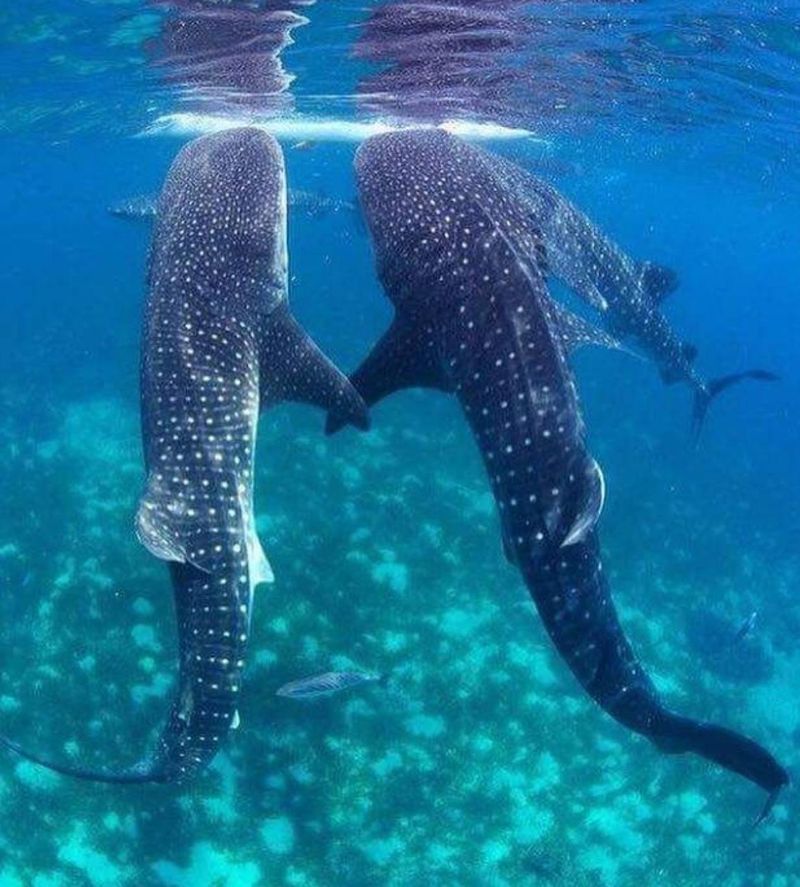
The birth process of the whale shark remains shrouded in mystery, with many aspects still unknown to scientists. Females are ovoviviparous, giving birth to live young after hatching eggs internally. This unique method of reproduction raises questions about their development and survival rates.
The elusive nature of their breeding grounds adds to the intrigue, making it challenging to study their early life stages. Researchers continue to seek answers, hoping to uncover the secrets of their reproduction.
The mystery surrounding their birth captivates scientists and enthusiasts, driving the quest for knowledge. The enigmatic birth process of whale sharks is a reminder of the ocean’s many secrets.
12. Role In Eco-Tourism

The presence of whale sharks in coastal regions has turned them into icons of eco-tourism, attracting visitors from around the world. These encounters generate significant economic benefits for local communities, promoting conservation awareness and sustainable tourism.
Eco-tourism centered around whale shark interactions emphasizes responsible practices, ensuring minimal impact on their natural behaviors. This approach provides a win-win situation, benefiting both the sharks and the people relying on tourism.
These sustainable tourism practices support conservation efforts, encouraging the protection of whale sharks and their habitats. The role of whale sharks in eco-tourism highlights their importance beyond the ocean, showcasing their value to human society.

